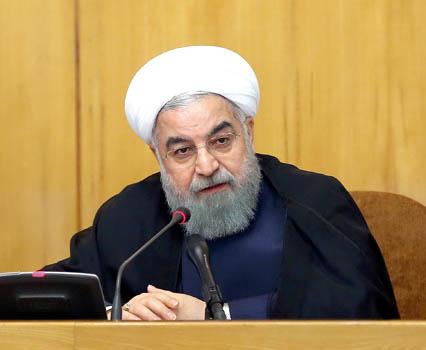You are here
West's unity on Iran hinges on US vote
By AFP - Sep 23,2020 - Last updated at Sep 23,2020

A man, wearing a protective mask due to the COVID-19 coronavirus pandemic, walks past a graffiti depicting the legendary Persian hero Rustam riding his horse behind a bound prisoner in Iran's capital Tehran, on Sunday (AFP photo)
PARIS — The reimposition of UN sanctions on Iran by the United States in the face of protests by Washington's European allies marks a highly unusual transatlantic rupture that may only be healed by the coming American elections.
The administration of US President Donald Trump says it has decided to unilaterally reinstate virtually all UN sanctions on Iran lifted under a 2015 nuclear accord with Tehran negotiated under former president Barack Obama.
Trump pulled out of the deal in 2018 to the dismay of European powers. But his administration insists it is still a "participant" and can therefore go ahead with the sanctions, a position denounced by Europe as absurd.
French President Emmanuel Macron said in a video address to the UN General Assembly on Tuesday that Europe "will not compromise" with the United States on Washington's activation of the sanctions mechanism.
"This would undermine the unity of the Security Council and the integrity of its decisions, and it would run the risk of further aggravating tensions in the region," he warned.
'Opposing US head-on'
The US invasion of Iraq in 2003 had also created a major split in Europe, with France and Germany furiously opposing the military action to oust Saddam Hussein.
But Britain, as well as several other European states, joined the US-led coalition.
This time, the Trump administration has succeeded in making Britain rally around its European partners at the very time London is seeking a new path after its exit from the European Union.
"This is the first time that the British have also opposed the United States head-on on a subject deemed essential in American foreign policy," said Pascal Boniface, director of the Institute for International and Strategic Affairs (IRIS).
Britain kept to the European line "despite ever more pressing demands of the United States" and the strategic implications of Brexit, he noted.
Trump, meanwhile, has shown little concern for nurturing Washington's close diplomatic relationships with European allies.
He has questioned the value of accords and institutions held dear by the Europeans: Pondering the need for US membership of NATO, withdrawing from the Paris deal on climate change and recognising Jerusalem as the capital of Israel.
The US has also threatened to use its veto on UN Security Council resolutions in ways that would have been unthinkable before Trump, notably in 2019, when it forced the watering down of a resolution on sexual violence in conflict.
But there is a limit to how far Europe would want to see relations with the United States damaged, especially as the EU has yet to clearly articulate a joint security and military policy.
Bertrand Badie, professor at the Paris Institute of Political Studies (Sciences Po), said the Europeans were above all "posturing" in the Iranian issue.
"Fundamentally, the priority for all the Europeans is to keep the alliance with the United States because they need it, as they are incapable of ensuring a European defence or foreign policy," he said.
More prosaically, "they all say to themselves 'we have to hold out'" until the US presidential election on November 3, he added.
'Pick up the pieces'
Should Democratic challenger Joe Biden, Obama's former vice president, win the election he would have the task of patching up the pieces of the eroded alliances.
Biden wrote in a commentary for CNN this month that if elected, the US would rejoin the nuclear agreement "as a starting point for follow-on negotiations" if Tehran returned to strict compliance with the accord.
"There is a smart way to be tough on Iran, and there is Trump's way," Biden said.
Analysts at the International Crisis Group (ICG) said it was widely recognised that the result of the election would determine the outcome of the sanctions dispute.
"If President Trump wins a second term, he will have ample time and opportunity to kill off the [nuclear accord], and then hope that Iran will come back to negotiate a different deal," the ICG said.
Americans and Europeans will seek to "pick up the pieces" if Biden is elected by reintegrating the United States into some international agreements, said Francois Heisbourg, special advisor to the Foundation for Strategic Research.
"But if Donald Trump is reelected, there is a real danger that he will take the opportunity to break the Atlantic Alliance," he said.
"The Iranian issue is one of the pretexts he could use to question the role of the United States in NATO."
Related Articles
TEHRAN — Iran said Saturday that new US sanctions on its petrochemical industry show the hollowness of President Donald Trump's claims to be
TEHRAN — Iranian President Hassan Rouhani called on Tuesday for a massive turnout in next month's parliamentary election, which look set to
TEHRAN — Iranian President Hassan Rouhani said on Wednesday that Tehran would "respond appropriately" to new US sanctions but that Iran rema
















